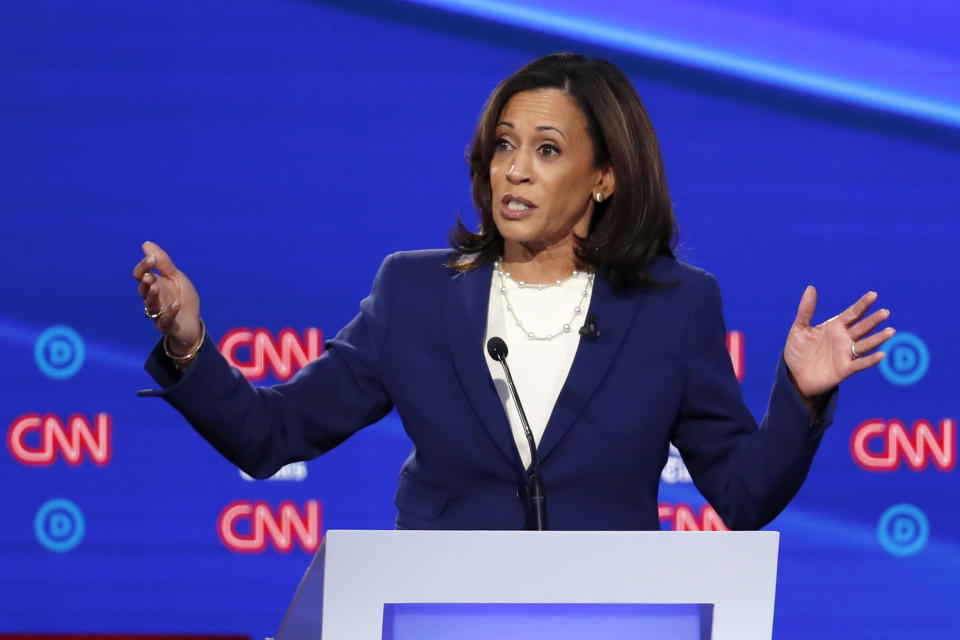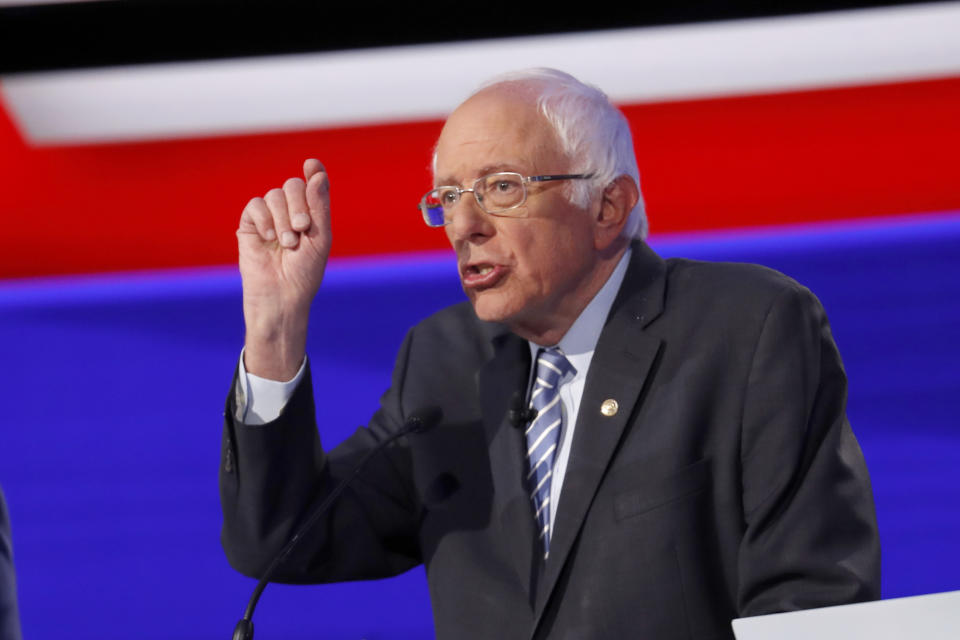'High-level dope dealers': Democratic candidates sound off on big pharma
The U.S. overdose crisis emerged as a key talking point at the Democratic presidential debate Tuesday night, when several candidates said they held big pharmaceutical companies accountable for the opioid epidemic in America.
“As a former prosecutor, I do think of this as being a matter of justice and accountability, because they are nothing more than some high-level dope dealers,” Sen. Kamala Harris (D-CA) said.
“They knew what they were doing,” Harris said. “They were marketing false advertising. They knew what they were pushing in communities and states like Ohio, without any concern about the repercussions because they were profiting and making big bucks. And yes, they should be held accountable. This is a matter of justice.”

‘It’s gotten worse and worse’
According to the Centers for Disease Control and Prevention (CDC), over 200,000 people in the U.S. died from overdoses tied to prescription opioids between 1999 and 2016. In 2017, nearly 49,000 people died from opioid-related overdoses, with synthetic opioid fentanyl being the biggest driver, and deaths that involved prescription opioids that year were five times higher than in 1999.
Johnson & Johnson (JNJ) settled two opioid lawsuits last week in Ohio, the site of the latest debate. It agreed to pay $10 million to Cuyahoga and Summit counties in order to avoid a federal trial. This came after J&J was ordered to pay $572 million to the state of Oklahoma in a landmark ruling, in which the judge agreed that the company deceptively marketed painkillers. Other companies that have reached opioid settlements include Allergan (AGN), Purdue Pharma, and Insys Therapeutics.
Harris wasn’t the only one to single out drug manufacturers for their role in the overdose crisis. Sen. Amy Klobuchar (D-MN) also spoke candidly about it.
“When I was a prosecutor, these were not the kind of cases that were coming in our door,” Klobuchar said. “And it’s gotten worse and worse. And we now know why.”
“As the evidence is coming out of those lawsuits, probably one of the most horrible things that I saw was the email from one of the pharma executives that actually said, ‘Keep pumping them out. They’re eating them like Doritos,’” she said, referring to opioid manufacturer Mallinckrodt.
Klobuchar stated that the people who should pay for opioid treatment “are the very people that got people hooked and killed them in the first place,” which she said are the manufacturers of the drugs. She would do this by imposing a $0.02-per-milligram tax, along with the federal master settlement (a global settlement that would pay billions of dollars to those affected by opioids), and use the money to help rural and urban areas overwhelmed by addiction.

Sen. Bernie Sanders (I-VT) also chimed in on the topic, connecting it back to how major executives make millions of dollars in profits.
“In this particular case with the opioids, they knew that they were selling a product to communities all over this country which were addicting people and killing them,” he said. “And last year, the top 10 drug companies made $69 billion in profit.”
He added: “This is what unfettered capitalism is doing to this country.”
Tech entrepreneur Andrew Yang also described the overdose crisis as “a disease of capitalism run amok” but stressed that “this is not a money problem. We all know this is a human problem.” He’s proposed harm reduction alternatives, like safe consumption and safe injection sites, and has also floated the idea of decriminalizing opiates for personal use.
“We have to let the country know this is not a personal failing,” he said. “This was a systemic government failing.”
Former Congressman Beto O’Rourke (D-TX) has also proposed decriminalizing opioids, along with finding ways to use marijuana in place of opioids. He also emphasized that he wants to hold big pharmaceutical companies like Purdue Pharma and Johnson & Johnson accountable.
Adriana is an associate editor for Yahoo Finance. Follow her on Twitter @adrianambells.
READ MORE:
Pete Buttigieg's prescription drug plan eyes funding for opioid treatment
Read the latest financial and business news from Yahoo Finance
Follow Yahoo Finance on Twitter, Facebook, Instagram, Flipboard, SmartNews, LinkedIn, YouTube, and reddit.

 Yahoo Finance
Yahoo Finance 
